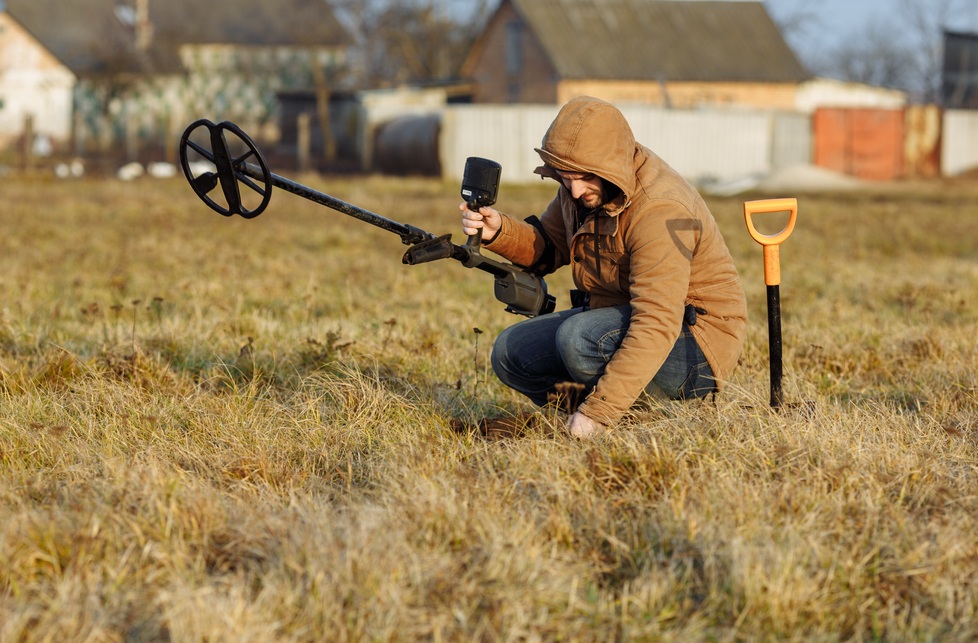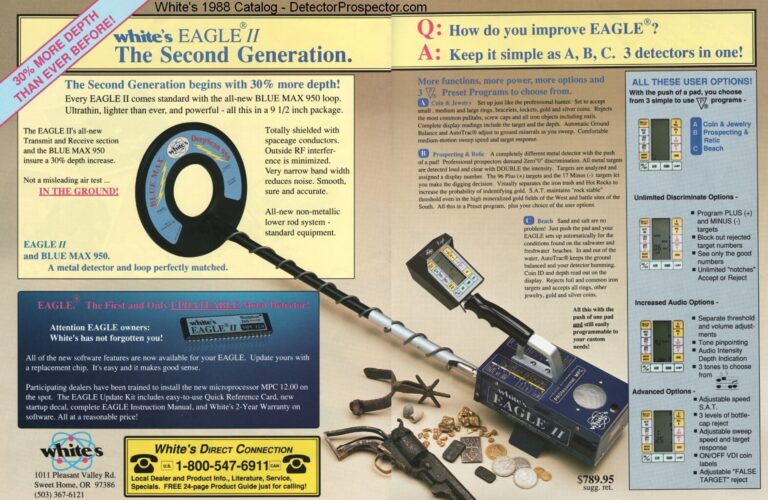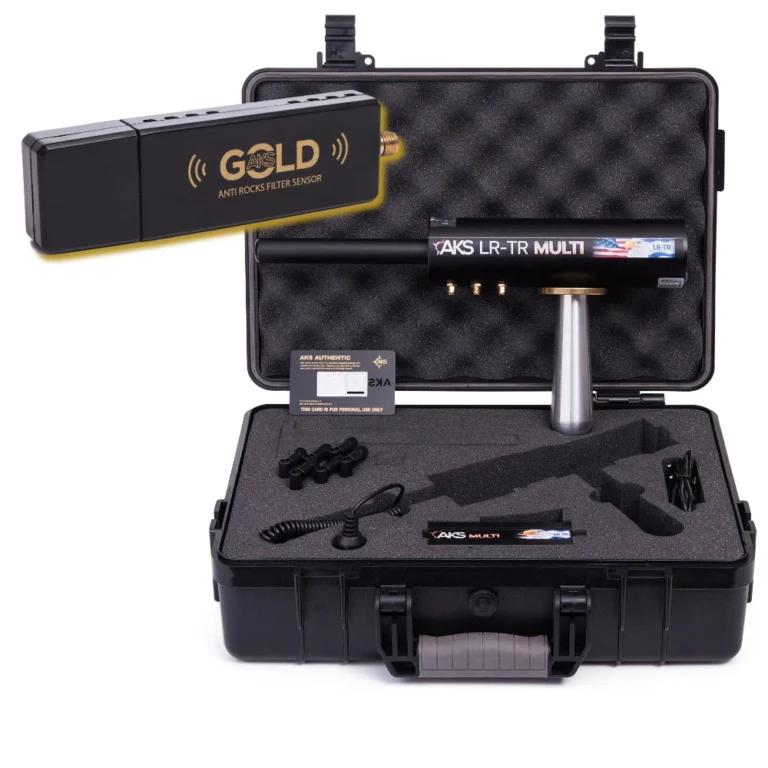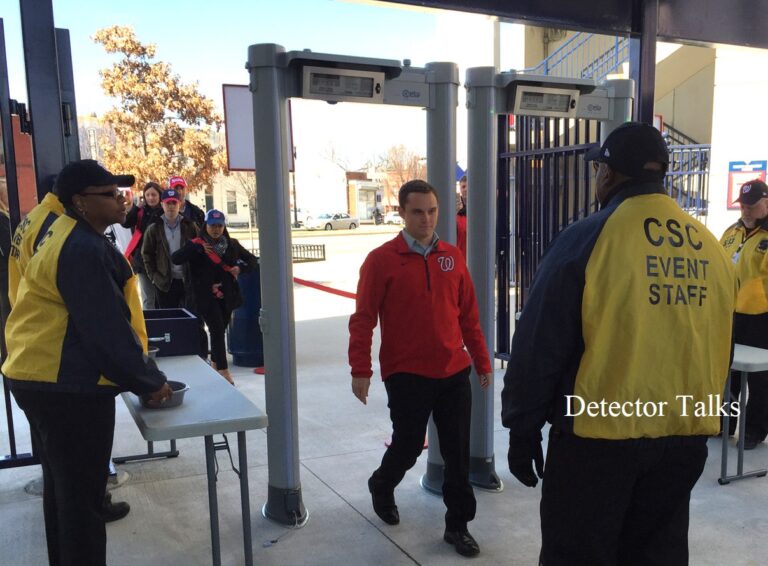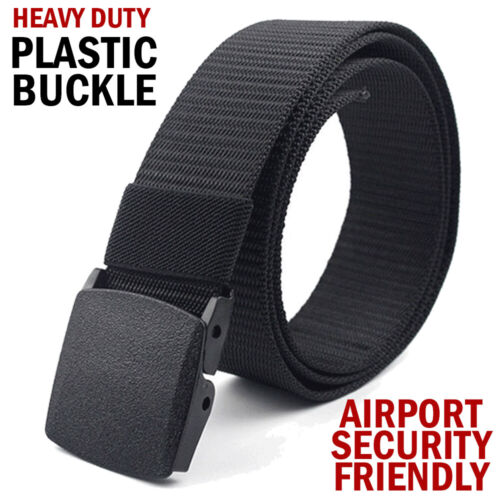What to Look for When Buying a Metal Detector
When it comes to finding buried treasure, a good metal detector is key. But with so many models on the market, it can take time to decide which one to choose. Here are a few things to keep in mind when shopping for a metal detector:
- The type of terrain you’ll be using it in. If you’re mainly detecting on beaches, look for a machine that’s specifically designed for saltwater conditions.
- The size and weight of the detector. You don’t want something too heavy or bulky to carry around, especially if you’re going to be using it for long periods.
- Your budget. Metal detectors can range in price from around $50 to several thousand dollars.
It’s essential to figure out how much you’re willing to spend before starting your search. With these factors in mind, you should be able to narrow down your choices and find the perfect metal detector for your needs.
There are a few things you should keep in mind when purchasing a metal detector. First, consider what type of terrain you’ll be using it in, whether that’s wet sand, dry soil, or something else entirely. Different detectors are better suited for different types of ground, so it’s crucial to find one that will work well where you’ll be using it most.
Second, think about what kinds of objects you’re hoping to find. Some detectors are better at finding small items, while others can more easily locate larger ones. Knowing what you want to find will help you choose the suitable model for your needs.
Finally, take into consideration how much experience you have with using metal detectors. If this is your first time buying one, look for a model that is easy to use and comes with clear instructions. With a little research, you can find the perfect metal detector for your next treasure hunt! We’ve discussed in detail What to Look for When Buying a Metal Detector. Let’s jump into the main article.
How Much Should a Good Metal Detector Cost?
When it comes to finding a good metal detector, the old adage “you get what you pay for” definitely applies. While some lower-priced detectors on the market can still find treasure, they may not have all the features and durability of a more expensive model. So, how much should a reasonable metal detector cost?
Generally speaking, most people who are serious about metal detection are willing to spend between $200 and $500 on a quality device. This price range will get you a detector with excellent discrimination capabilities, automatic ground balancing, and depth readouts. Some of the top models in this price range include the Garrett AT Pro and the Minelab Equinox 800.
Of course, if you’re starting out or only plan to use your detector occasionally, there are less expensive options available that can still be quite effective. For instance, the Bounty Hunter Junior TK is a great entry-level choice that can be had for around $100. It doesn’t have all the bells and whistles of more expensive models, but it’s perfect for those just getting started in the hobby.
No matter how much you’re looking to spend on a metal detector, be sure to do your research before making any purchase. There are many factors to consider, such as where you’ll be using it most often (beach/water vs. land), what types of objects you’re hoping to find (coins vs. jewelry), and your own personal preferences in terms of weight, balance, and ergonomics.
By taking these things into account, you can narrow down your choices and find the perfect machine for your needs – without breaking the bank!
What is the Best Metal Detector for Your Money?
There is no easy answer when it comes to finding the best metal detector for your money. However, by taking into account a few key factors, you can make an informed decision that will hopefully lead you to success.
Here are a few things to keep in mind when choosing a metal detector:
- Decide what type of detecting you want to do.
There are three main types of metal detectors – all-purpose, general-purpose, and specialty. All-purpose detectors are good for most types of detecting, from coins to jewelry to relics. General-purpose detectors work well for coins and jewelry but may be less effective on other objects. Specialty detectors are designed specifically for certain types of objects, like gold nuggets or meteorites.
- Consider the environment in which you’ll be using the detector.
Metal detectors can be used in a variety of environments, from sandy beaches to heavily forested areas. Each type of environment presents its own challenges, so it’s essential to choose a detector that is well suited for the conditions you’ll be using it in most often.
- Think about what kind of features you need.
Metal detectors come with a wide range of features, some of which may be more important than others, depending on your individual needs. Do some research ahead of time and decide which features are must-haves and which ones you could live without. This will help narrow down your choices and make selecting the suitable machine easier.
- Set a budget and stick to it.
It’s easy to get caught up in all the bells and whistles that come with higher-end models, but remember that, ultimately, you’re looking for something that fits within your budget. Don’t let yourself get swayed by extravagant claims or extra features that you don’t really need – stay focused on finding the best machine for the price you’re willing 5 pay. In short, there is no definitive answer when it comes to finding the best metal detector for your money – it depends on many factors specific to your individual needs.
What Should I Look for in a Metal Detector for a Beginner?
If you’re thinking about getting into metal detecting as a hobby, you might be wondering what kind of detector is best for a beginner.
Here are a few things to consider when making your purchase:
- Budget – How much are you willing to spend on a metal detector?
There are models available at different price points, so it’s important to set a budget before you start shopping. Keep in mind that the more expensive models will usually have more features and better performance than the cheaper ones.
- Purpose – What do you hope to find with your metal detector?
If you’re looking for general treasure, then any detector will do. However, if you’re specifically interested in finding coins or jewelry, then you’ll want to look for a model that has good discrimination capabilities. This way, you can ignore the junk and focus on the things that are actually valuable.
- Operating Frequencies – Most detectors operate at either low or high frequencies.
Low frequencies are best for finding large objects like coins or jewelry, while high frequencies are better for smaller objects like nails or foil wrappers. If you need to know which frequency would be best for your purposes, then it’s worth checking out both types before making your final decision.
- Ground Balance – This is an important feature to look for if you’ll be doing any Detection in areas where there is a lot of mineralization in the ground (like beaches).
Ground balance basically allows the detector to “tune out” false signals caused by minerals in the soil so that it can focus on real targets instead. Not all detectors have this feature, so if it’s important to you, then make sure to check for it before buying anything.
- Waterproof Searchcoil – If you plan on doing any detecting in areas where there might be water present (lakes, rivers, etc.), then it’s definitely worth getting a model with a waterproof search coil. That way, if your coil happens to get wet, it won’t ruin the whole machine.
Do Cheap Metal Detectors Work?
Just because a metal detector is cheap doesn’t mean it won’t work. In fact, many cheap metal detectors can be just as effective as more expensive models. It all comes down to how well the metal detector is designed and manufactured.
When it comes to looking for metals, the most important thing is the coil. The coil is what emits an electromagnetic field that can detect metallic objects. So, as long as the coil in a cheap metal detector is good quality, it should be able to find metals just fine.
Of course, there are other factors to consider besides just the coil. For example, cheaper metal detectors will often have shorter detection ranges than more expensive models. They may also be less sensitive to certain types of metals.
But overall, if you’re looking for a basic metal detector on a budget, then a cheap model should suffice.
Best Metal Detector for Beginners
Have you ever wanted to try your hand at metal detecting but didn’t know where to start? Look no further! In this blog post, we will give you the rundown on the best metal detectors for beginners.
There are a few things to consider when purchasing your first metal detector. First, think about what you want to use it for. Are you interested in finding lost objects like keys or jewelry?
Or are you more interested in looking for coins, relics, or other treasures? Your intended use will help guide you to the right model. Next, consider how much money you’re willing to spend.
Metal detectors can range in price from around $50 to over $1,000. Obviously, the more expensive models will have more features and be of better quality, but that doesn’t mean the less expensive ones aren’t worth considering – especially if you’re starting out.
Here are a few of our top picks for beginner metal detectors:
The Bounty Hunter Junior TK4 is a great option if you’re on a budget. It’s easy to use and comes with everything you need to get started, including headphones so you can hear those all-important beeps even in noisy environments. Best of all, it has a suggested retail price of just $49.95.
If you have a bit more money to spend and want something with some extra features, take a look at the Garrett Ace 400 Metal Detector. This one includes an LCD screen that displays information like depth and battery life, plus it has notch discrimination so you can filter out unwanted items like bottle caps or pull tabs. It also has a higher sensitivity than lower-priced models, which means it can detect smaller objects at greater depths – perfect for those who want to find hidden treasures! It retails for around $200.
Best Metal Detector for Depth
Are you looking for a metal detector that can provide deep scanning? If so, you’ve come to the right place. In this article, we’ll discuss the best metal detectors for depth and how they can help you find buried treasure.
There are a few things to consider when choosing a metal detector for depth. First, you’ll want to make sure that the unit is able to scan at least 10 feet below the ground. This will ensure that you’re able to find anything that’s buried deep.
Second, you’ll want to make sure that the unit has good discrimination. This means that it can distinguish between different types of metals. Otherwise, you may have a lot of false positives.
Finally, you’ll want to make sure that the unit is durable and well-built. After all, it will be spending a lot of time underground!
With those factors in mind, let’s take a look at some of the best metal detectors for depth:
This unit is designed for extreme depths, as it can scan up to 30 feet below the ground. It also has excellent discrimination capabilities, so you won’t have to worry about false positives. Plus, it’s built like a tank – meaning it can withstand plenty of abuse underground.
Another great option for deep scanning is this unit, which can reach depths of 40 feet or more! It also has excellent discrimination capabilities and is very durable (it’s been known to withstand being dropped from heights).
A great choice if you’re looking for ultimate depth (up to 65 feet!), this detector also has excellent discrimination capabilities. Plus, it comes with two search coils – one small coil for tight spots and one large coil for open areas.
Another excellent choice for deep scanning, this unit can reach depths of 20 feet or more! It also features adjustable Discrimination settings so that you can filter out unwanted metals.
Professional Metal Detector
If you’re serious about metal detecting, then you need a professional metal detector. These detectors are designed for serious hobbyists and professionals who want the best possible performance. Professional metal detectors offer superior detection capabilities, build quality, and features.
They also come with a higher price tag than entry-level models. But if you’re willing to invest in a top-of-the-line machine, you’ll be rewarded with years of enjoyment and success. Here’s what you need to know about professional metal detectors.
Detection Capabilities
The most important factor in any metal detector is its ability to find metals hidden underground. Professional models offer the best detection capabilities thanks to their advanced sensors and algorithms.
They can accurately detect all types of metals, including ferrous (iron-based) and non-ferrous metals. This means they can find coins, jewelry, relics, and even gold nuggets hidden deep in the ground.
Build Quality
Professional metal detectors are built to withstand years of use in tough conditions. They’re usually made from high-quality materials like aluminum or stainless steel. They often have waterproof coils and housing, so you can use them in wet or dusty environments without worry.
Many models also come with a rugged carrying case that protects your investment during transport or storage.
Conclusion
When you’re in the market for a new metal detector, it’s essential to know what features to look for. You want to avoid ending up with a dud that doesn’t find anything, or worse, one that gives false positives all the time. Here are some things to keep in mind when you’re shopping around.
The first thing you need to decide is what type of metal detecting you’ll be doing. Are you looking for gold nuggets in streams? Trying to find lost relics?
Searching for coins on the beach? Each activity requires different features in a metal detector. Once you know what you’ll be using it for, research different models and read reviews from other users.
It’s also essential to test out each model yourself before making a purchase.
Some things you should pay attention to include:
- The weight and balance of the machine
- How easy it is to use
- The quality of the build
- Whether or not it comes with a warranty
With so many options on the market, it can take time to choose the right metal detector. But if you keep these factors in mind, you’ll be sure to find one that suits your needs perfectly.

